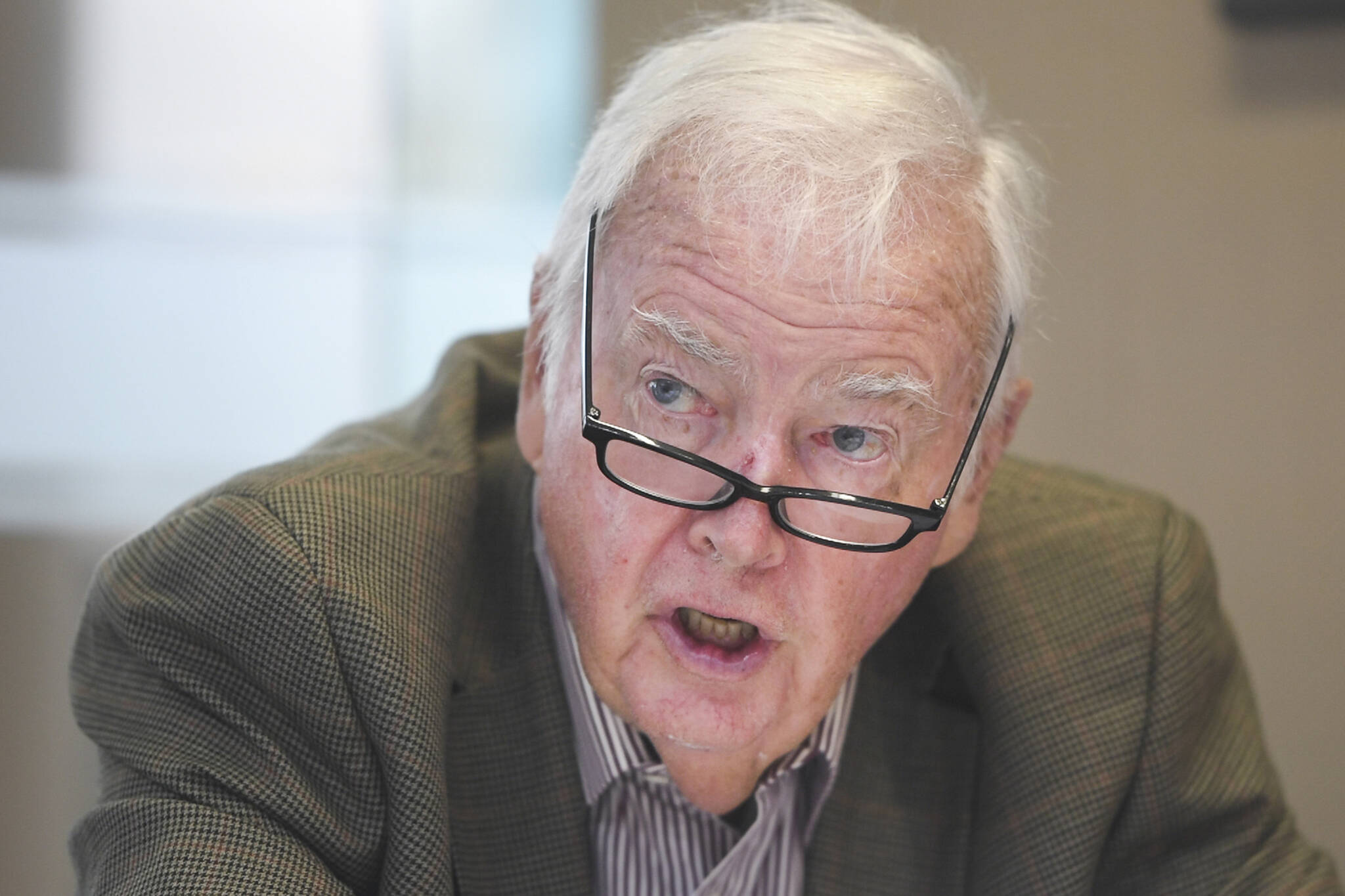By Frank H. Murkowski
After saying Saudi Crown Prince Mohammed bin Salman was a pariah for the killing of journalist Jamal Khashoggi, President Biden has traveled to Saudi Arabia to engage with the Arab world.
I believe his priorities are out of touch with most Americans. Today we continue to see escalating oil and gasoline prices, and runaway inflation with no end in sight. Yet our president suggests his mission is to contribute “intense diplomacy.” He further pledges to stay aggressive against Russia and out-compete China — yet not one word on the U.S. energy shortage.
America has responsible solutions to our energy crisis and inflation rate here in the U.S. generally — and in Alaska in particular.
The president should travel to Alaska (which is much closer) instead of Saudi Arabia, and inspect the prospects for producing more oil on the North Slope, specifically ANWR and NPRA. He should visit the Willow project and other North Slope opportunities and order his administration to move forward with the recently released Supplemental Environmental Impact Statement (SEIS). He should work with Alaska oil producers to evaluate the role of Alaska’s gas in addressing Europe’s gas needs.
Once up and running, Alaska could provide for approximately 28% of the gas Russia has been supplying to Eastern Europe.
Supplanting Russia gas with Alaska gas makes good environmental sense. Alaska gas is far more climate-friendly than Russian gas for two reasons. One, Alaska’s North Slope gas is not flared into the atmosphere, but is reinjected. Two, Alaska’s environmental and safety standards are more restrictive than Russian standards.
By failing to look to Alaska oil and gas, the president seems more fearful of environmental groups than of doing an about-face with the Saudi prince. He should not be; environmental groups have no place else to go, and the bravery of Ukrainian soldiers fighting for their homeland shows that this war may go on for some time. Even when it is over, Eastern Europe will not want to return to dependence on Russian oil and gas.
The argument is made that the need for oil and gas is short term and is a fossil fuel detour on the road to the 2050 clean energy transition. The July 1 edition of The Economist suggests that this problem could be addressed by the government providing financial support.
The Economist makes a good point. Environmental group arguments for doing away with fossil fuels assumes that carbon capture technology will not advance sufficiently in the next 25 years to significantly reduce carbon emissions. The pace of technology change in all sectors of our economy should be considered in a manner that supports American and Alaska oil and gas development and jobs, and does not export jobs to Saudi Arabia and the Mideast or impact our growing balance of payments deficit.
In addition, President Biden is withdrawing 1,000,000 barrels of oil a day from the nation’s Strategic Petroleum Reserve. Oil is stored there for national security reasons and will have to be replaced at some point. Again, rather than relying on foreign sources, it can and should be replaced with oil from the United States, including Alaska.
Finally, using Alaska oil and gas would be consistent with former President Obama’s All-of-the-Above energy strategy that President Biden is on record as supporting when he was vice president. In July 2014, a presidential report described that strategy as follows:
“The All-of-the-Above energy strategy supports these trends through environmentally responsible production of oil and natural gas. In addition, the administration has advanced the growth of energy sources with low or zero carbon emissions through programs that support wind, solar, other renewables, and nuclear, and has also helped to reduce energy demand by promoting energy efficiency. The administration is also supporting an ambitious program of carbon capture, utilization and storage for coal and natural gas power plants for industrial facilities.”
So, what should President Biden do instead of looking for relief from the Saudi prince?
First, his administration should direct the Department of the Interior and Department of Justice to support the Alaska oil projects currently under attack from environmental groups.
Secondly, the president should invoke the Defense Production Act (known as DPA) to apply the full resources — including financial resources — of the Defense Department to build the Alaska gas line to supply gas to Eastern Europe in the name of national security.
Third, the president should order the USGS to explore the federally owned NPRA and ANWR for oil and gas resources on an emergency basis, make the USGS results available to the oil and gas industry, and conduct competitive lease sales based on the USGS findings.
Fourth, the president should direct the use of DPA to further advance carbon capture technology and support of all of the energy strategy that our country needs.
In short, charity does begin at home, not with the oil-rich Mideast nations that actually control the supply of oil in the world and that the world depends on.
Frank H. Murkowski is a former Alaska senator and governor.

